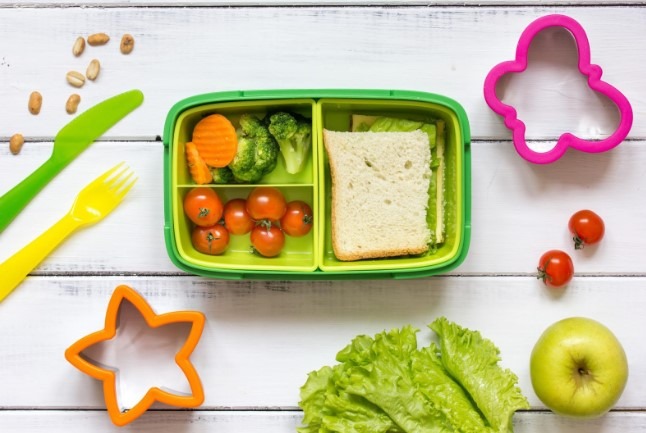It’s important to talk to your kids about healthy food choices. Keep reading for kids lunches: how to get kids to eat healthy school lunches.
Obesity affects more than 13.9 million adolescents and young children in the United States.
Even if your child isn’t obese, or prone to overeating, there is still the possibility of poor health if they aren’t getting the nutrition they need. The absence of good, healthy diets and poor eating habits can have terrible consequences on a child’s physical and mental health.
Now, while you may have control over what your child eats for breakfast and dinner, most kids have their lunches at school. That’s why it’s important to keep track of your kids lunches and encourage healthy habits even when you’re not around to supervise.
Here are a few tips to help you do just that!

Communicate with Your Child
Communication is what defines your relationship with your child. Make time for your child every day no matter how hard your day is. Talk to them about the school, school work and what they had for lunch.
This way you can keep track of what they’re eating for lunch, and whether or not it’s healthy for your child to consume. However, try not to be too forceful or judgmental with your child’s choices, but focus more on education and healthy habits.
Examine the Menu Together
Take a look at the school menu every time it changes with your child. Get them enthusiastic about what they want to eat, and add your own input to their decisions without being overbearing.
Show them how to portion out their meals, talk to them about the more nutritious option, and reward any healthy opinions they have about food. Ask them why they prefer a certain option over the other and encourage them to think differently about food.
Encourage Healthy Habits at Home
If your child doesn’t have healthy eating habits at home, it is highly unlikely for them to develop these at school. Be an observer for a while, and figure out your child’s relationship with food.
Is it a healthy one? Are they getting the nutrition they need? Do they eat less than they should?
Do they eat more than they should? Do they like fruits? Do they like veggies?
Keep track of their likes and dislikes to be able to create healthier meal options they might actually like. If you notice any odd behaviors surrounding food, it might be necessary to talk to a child psychologist or dietician.
As eating disorders get increasingly common in the United States, you want to be sure that your adolescent has the right kind of mindset and appreciation for their body and health.
Practice Healthy Eating Habits
It’s no secret that children emulate what they see at home. If your child appears to have developed poor eating habits, it’s time to check with yourself and the adults they live with to see if your eating habits are healthy.
If your relationship with food is poor, it is likely for your child to pick up on your unhealthy habits as well. Do make the effort to stay as healthy as you can with good nutrition, physical activity, and healthy eating habits. This is not only a key part of parenting but also very important for your own physical and mental health.
If you suffer from an eating disorder, body image issues or stress eating, make sure you get the help you need for yourself.
Show Them that Healthy Can Be Delicious Too
An unfortunate notion, but a common one is that healthy food doesn’t taste very good. Now a reason this is unfortunate is because it simply isn’t true.
With the right preparations, ingredients, and attitude a meal can be both, nutritious as well as tasty. Not everything needs to be deep-fried, heavily salted and doused in cheese. Find healthy recipes that your family will love, look for healthier alternatives to popular snacks and show your kids just how delicious a healthy meal can be.
Look for Alternative Ways to Find Healthy Kids Lunches
If you’re unhappy with your school’s menus and don’t have the time to prepare one for them to carry along, school lunch delivery systems can be a great alternative.
Not only do they offer more variety, but it gives you the ability to monitor what it is your child is consuming. Go over the menus together and find delicious options that make you both happy.
The Art of Moderation
While french fries, cheeseburgers, and chocolate aren’t the healthiest of choices, know that the major reason for their ‘unhealthiness’ is their addictiveness.
The occasional burger won’t have severe consequences, just like the occasional salad won’t make much of a difference either. Allow your kids the occasional treat, and talk to them about portion control, moderation and other healthy practices while choosing food.
Consistency is the ultimate goal when it comes to a good diet. Drastic changes don’t work, and the stricter you are, the more likely it is going to backfire. Unless your child is extremely obese, some simple lifestyle and dietary changes can go a long way in making healthy nutrition sustainable.
A Healthy Diet = A Healthy Mind
There have been numerous studies that demonstrate the correlation between healthy nutrition and healthy minds. Once your kids lunches, dinners, and dietary habits are healthy, they’ll be able to think better and perform better at what they do.
Like what you’re reading? Share this article with fellow parents and help them bring healthier nutrition to their kids!
I’m a 20-something stay-at-home mother and wife. I have an amazing husband, a beautiful daughter, two loving dogs, and a lazy cat. I wouldn’t change my life for anything! I love to read, listen to music, cook and blog!

Speak Your Mind